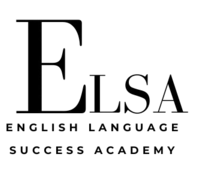Multiple-choice questions (MCQs) are a staple in English exams, particularly in reading comprehension tests. These questions assess your ability to understand texts, infer meanings, and identify key information. Despite their seemingly simple format, MCQs can be tricky, often including misleading or confusing options. This article provides a comprehensive guide to mastering multiple-choice questions, covering the types of MCQs you may encounter, strategies for eliminating incorrect options, time management tips, and practice exercises to sharpen your skills.
Common Types of Multiple-Choice Questions in Reading Tests
Multiple-choice questions in reading comprehension tests typically fall into several categories, each requiring a slightly different approach. Understanding these types can help you develop effective strategies for tackling them.
1. Detail-Based Questions
These questions ask you to locate specific information within the passage. They often begin with phrases like “According to the passage…” or “What does the author say about…?” To answer detail-based questions, you need to find explicit facts mentioned in the text.
2. Inference Questions
Inference questions require you to read between the lines and draw conclusions based on the information provided. These questions often use phrasing like “It can be inferred that…” or “What is implied by…?” You won’t find the answer directly in the text, but the information is strongly suggested.
3. Main Idea or Purpose Questions
These questions assess your understanding of the overall message or theme of the text. You may be asked, “What is the main idea of the passage?” or “What is the author’s purpose in writing this passage?” To answer these, you need to look at the passage as a whole and identify the central theme.
4. Vocabulary in Context Questions
These questions test your understanding of how a specific word or phrase is used in the passage. They often ask, “What does the word X mean in this context?” It’s important to understand how the word is functioning within the sentence and the surrounding text.
5. Author’s Tone or Attitude Questions
These questions require you to determine the author’s tone or perspective on the subject. You may be asked, “How does the author feel about…?” The correct answer will be based on clues in the text, such as word choice, phrasing, or the overall style.
Strategies for Eliminating Incorrect Options
One of the most effective ways to approach multiple-choice questions is through the process of elimination. By identifying and discarding incorrect options, you increase your chances of selecting the correct answer, even when unsure.
1. Eliminate Extreme Answers
Extreme options are often incorrect in reading comprehension questions. Words like “always,” “never,” “completely,” or “absolutely” tend to overstate the information. If an option seems too rigid or uncompromising, it’s probably a distractor.
2. Look for Opposite Choices
In some cases, an option may present information that is the opposite of what the text says. These opposite choices are designed to mislead you, so be cautious. Always refer back to the passage to verify whether the statement aligns with the content.
3. Identify Partially Correct Answers
Some options may seem correct at first glance but are only partially accurate. These answers may include some correct information but also add details that are not supported by the text. Be wary of answers that “sound right” but introduce information that wasn’t explicitly mentioned.
4. Compare Similar Choices
When two or more options appear similar, examine them closely. One will typically be more aligned with the specific details in the text, while the other will include subtle errors or assumptions. In such cases, go back to the passage to confirm which option is more accurate.
5. Match the Author’s Language
Often, the correct answer will use language or ideas that closely mirror those in the text. Distractors, on the other hand, may introduce new terms or paraphrase in a way that distorts the original meaning. Always prioritize the option that best reflects the author’s wording or style.
Time Management Tips for Multiple-Choice Sections
Time management is crucial in exams, particularly when it comes to multiple-choice sections. Here are some tips to help you stay on track:
1. Skim the Passage First
Before diving into the questions, quickly skim the passage to get a general sense of the topic, structure, and tone. This will help you locate relevant information faster when answering questions.
2. Read the Questions Before the Passage
Some students find it helpful to read the questions before the passage. This way, you know what information to look for as you read. Focus on keywords in the questions, such as dates, names, or specific terms, to guide your reading.
3. Manage Your Time Per Question
On average, spend about 1-2 minutes per question. If you find yourself spending too much time on a single question, move on and come back to it later if time permits. It’s important not to let one difficult question eat up time that could be spent on easier ones.
4. Mark Uncertain Answers
If you’re unsure of an answer, make your best guess and mark it for review. Move on to the next question and come back later if you have time. It’s better to attempt all questions than to leave any blank.
5. Don’t Overthink
Trust your instincts. Often, your first impression of an answer is the correct one. Avoid overanalyzing or second-guessing yourself unless you find clear evidence that contradicts your initial choice.
Practice Exercises with Explanations
Below are two practice exercises with detailed explanations of both correct and incorrect answers.
Practice Question 1: Main Idea Question
Passage Excerpt: “Over the past decade, renewable energy sources such as solar and wind power have gained widespread acceptance due to their environmental benefits. Governments and corporations alike have invested heavily in these technologies, which have become more affordable and efficient. However, the transition from fossil fuels to renewable energy is not without its challenges, including high initial costs and the need for improved storage technologies.”
Question: What is the main idea of the passage?
- A) Renewable energy is now the cheapest energy source.
- B) Solar and wind energy have become more popular but face some challenges.
- C) Fossil fuels will soon be replaced by renewable energy.
- D) Governments are not doing enough to support renewable energy.
Answer: The correct answer is B.
- Explanation: The passage discusses how renewable energy sources like solar and wind have gained acceptance and investments but also mentions the challenges they face. Option B captures this balanced view. Option A is incorrect because the passage doesn’t claim that renewable energy is the cheapest. Option C is too extreme, and option D isn’t supported by the passage.
Practice Question 2: Vocabulary in Context Question
Passage Excerpt: “The researchers conducted a series of trials to ascertain the efficacy of the new drug. Early results were promising, but further testing is required to ensure its safety for widespread use.”
Question: What does the word “ascertain” most likely mean in this context?
- A) Assume
- B) Confirm
- C) Disregard
- D) Develop
Answer: The correct answer is B.
- Explanation: In this context, “ascertain” means to confirm or establish something with certainty. The researchers are trying to determine the efficacy of the drug, which aligns with confirming its effectiveness. Option A (“assume”) is incorrect because it suggests a lack of certainty, while Option C (“disregard”) and Option D (“develop”) do not fit the context.
Elsa Says:
Mastering multiple-choice questions in reading comprehension tests requires a mix of strategy and skill. Understanding the different types of questions, learning how to eliminate wrong answers, and managing your time effectively are all crucial to success. Regular practice is essential—focus on identifying key information quickly, matching the author’s tone and language, and avoiding common traps. With these techniques, you can approach multiple-choice sections with confidence and improve your performance.



